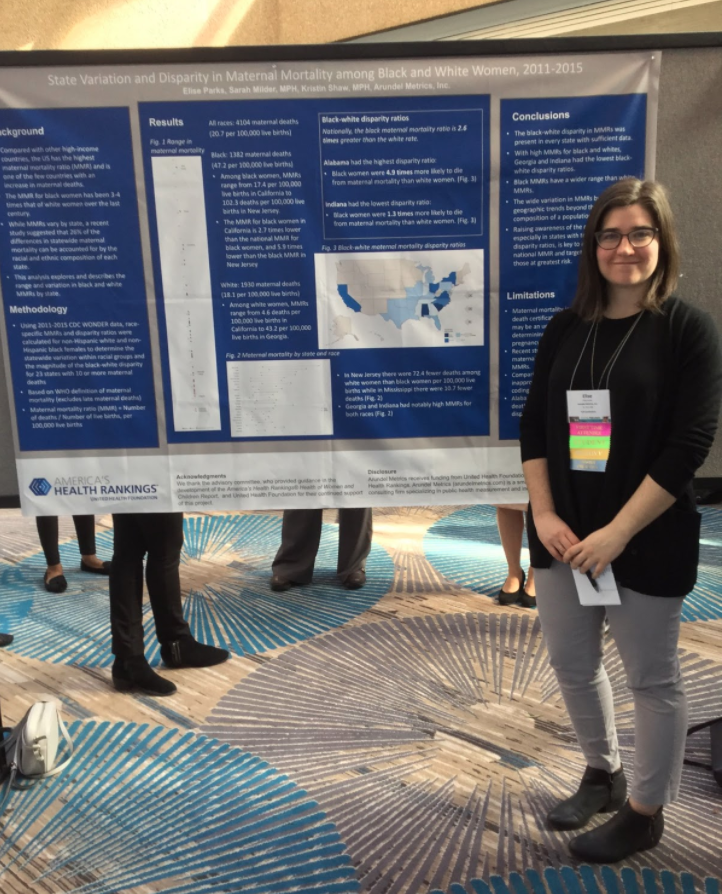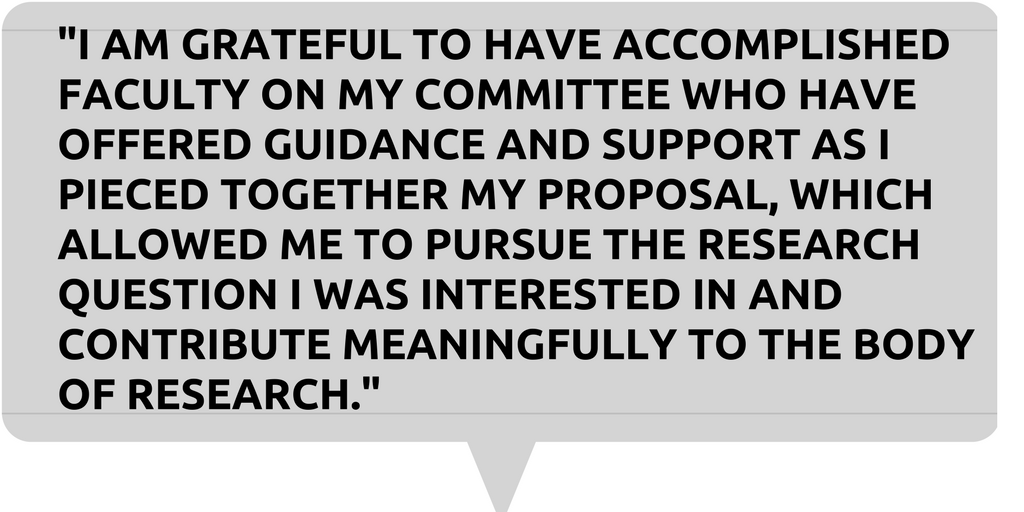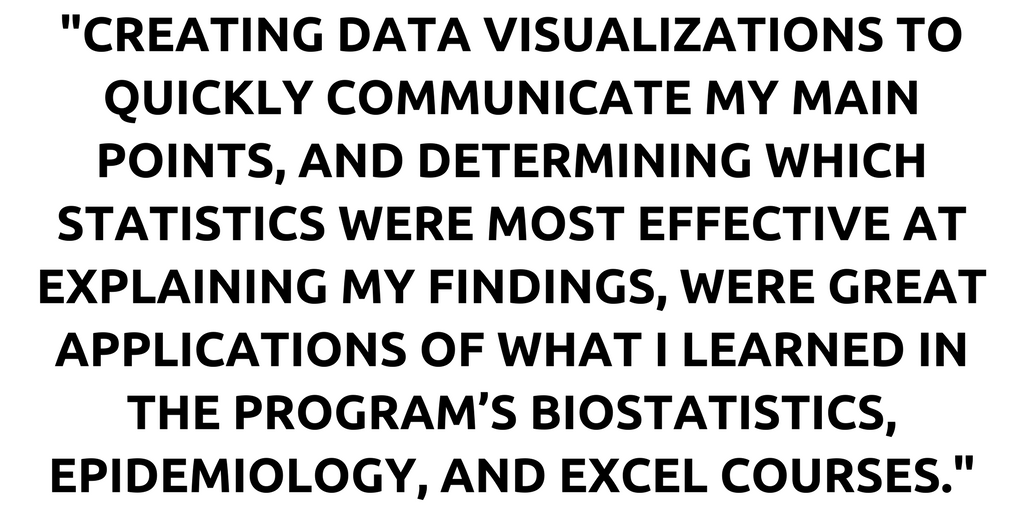#UMNMCH student Elise Parks (MPH 2018) wrote this reflection on how her coursework, internships, field experience, and culminating experience have all contributed to her career in Maternal and Child Health.

When I first entered the University of Minnesota (UMN) Masters of Public Health Program, I struggled to select a single topic area to concentrate on. I was very drawn to the interdisciplinary nature of public health, but that also meant a wealth of subject matter that intrigued me: how would I ever narrow it down? I was torn between continuing to focus on the relationship between housing and health, as I had previously worked with affordable housing, or branching out to explore maternal and reproductive health. Gradually I refined my interests through exposure in my coursework, field experience, and culminating experience, though I still consider myself a proud generalist. The following details how my interests were cultivated through the Maternal and Child Health (MCH) Program, and where they have led me thus far.
Closing Clinics & MCH Populations
I first started hearing about hospitals closing in rural Minnesota on the news when the Mayo Clinic announced the closure of their Albert Lea location. Around the same time, researchers from the UMN’s Rural Health Research Center published a report on diminishing obstetric care services across the country, and I wanted to know more about this trend and its impact on maternal health. When selecting a local topic to explore over the semester for Children and Families: Public Health Policy and Advocacy, taught by alumna Lauren Gilchrist (MPH 2007), I excitedly decided to delve into the issue. Reading the existing literature and developing a policy solution for class left me with a long list of research questions, evolving into the proposal for my master’s thesis. My project on rural Minnesota attempts to determine whether or not distance to obstetric care, calculated using GIS, is associated with increased odds of out-of-hospital birth along with researching the extent to which services have been lost over the past ten years. The importance and immediacy of this issue was confirmed when a friend of mine detailed her struggle of deciding where to give birth with few local options available to her in rural Minnesota: an example I like to share with those do not understand what MCH can mean at the population level.

Maternal Mortality & Health Impact Statements
The other area I focused on while in the MCH Program was maternal mortality. As part of my field experience, I spent the summer writing public health impact statements for the 2018 America’s Health Rankings Health of
Women and Children Report with Arundel Metrics, a small public health consulting firm in St. Paul. When the intern team was invited to submit poster abstracts, I seized the opportunity to delve deeper into the literature on maternal mortality and the alarming racial disparities that I had researched previously. My abstract, which compared the black-white racial disparity in maternal mortality rates between states, was accepted for the Association of Maternal and Child Health Programs (AMCHP) 2018 annual conference, and I traveled to D.C. to present. Creating data visualizations to quickly communicate my main points, and determining which statistics were most effective at explaining my findings, were great applications of what I learned in the Program’s biostatistics, epidemiology, and Excel courses.
At the conference, meeting MCH professionals from across the U.S. was an incredible experience: hearing about different projects and innovations, connecting with other young MCH professionals, and talking about my interest in rural health care access with people from rural areas were among the highlights. I had the chance to meet a maternal mortality data abstractor and learned first-hand some of the causes of the state-by-state variation I had researched, as well as the challenges with the classification and surveillance system.
Tying it All Together
My coursework, various internships and jobs, and field and culminating experiences have all been great assets to me thus far. The epidemiology concentration allowed me to get the data analysis and statistical skills I wanted, while still gaining a foundation in MCH competencies. Looking forward, I want to work at the intersection of public health data, translation, and programming at a population level, ideally in an area that impacts MCH in the state of Minnesota.
Elise Parks (MPH 2018) graduated with a BA in Psychology from the University of Minnesota-Moorhead. She worked for several years with local community-based nonprofits before returning to graduate school.
–Read Student Spotlight archives
Interested in learning more about getting a degree in MCH? Visit our MCH Program page for more information.
#UMNMCH #UMNproud #UMNdriven